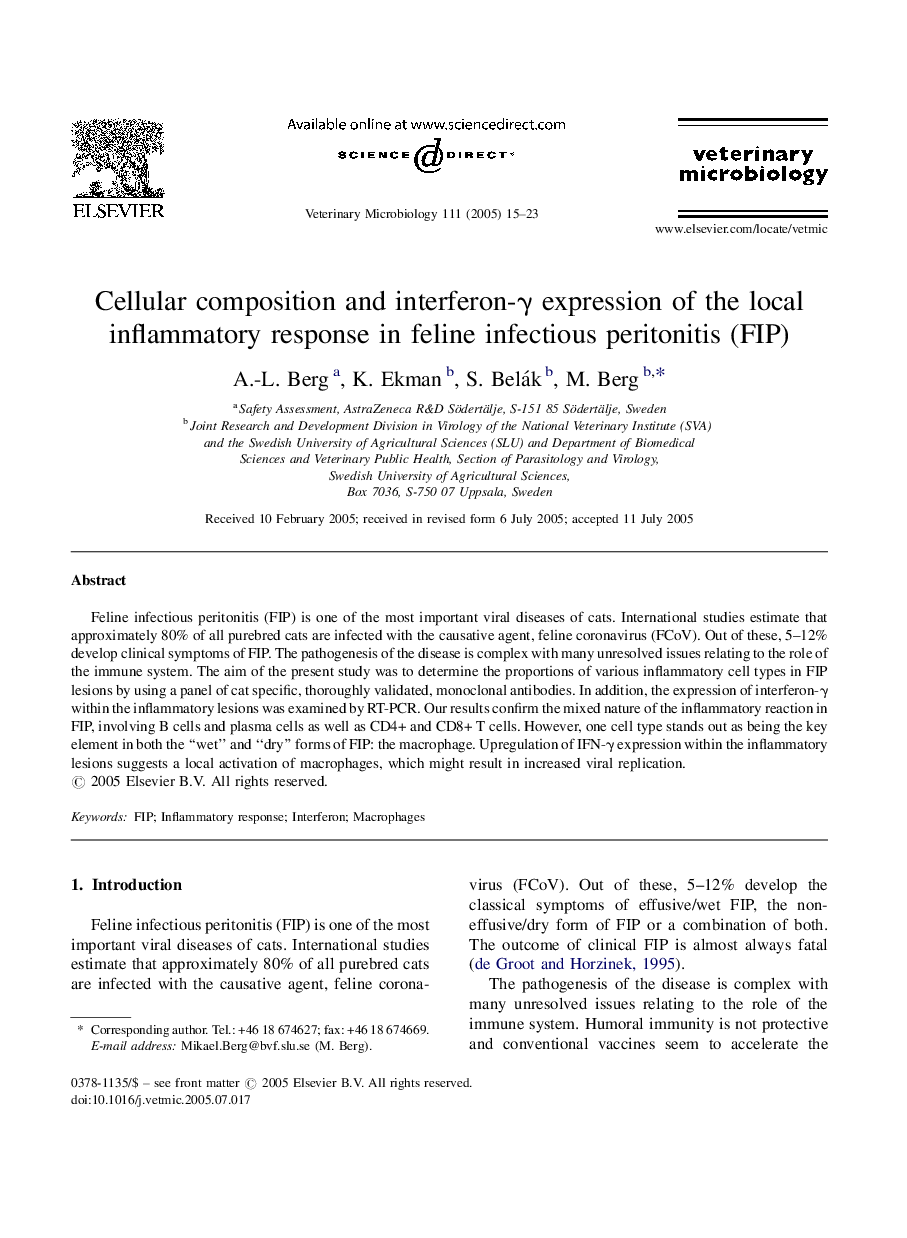| Article ID | Journal | Published Year | Pages | File Type |
|---|---|---|---|---|
| 8989386 | Veterinary Microbiology | 2005 | 9 Pages |
Abstract
Feline infectious peritonitis (FIP) is one of the most important viral diseases of cats. International studies estimate that approximately 80% of all purebred cats are infected with the causative agent, feline coronavirus (FCoV). Out of these, 5-12% develop clinical symptoms of FIP. The pathogenesis of the disease is complex with many unresolved issues relating to the role of the immune system. The aim of the present study was to determine the proportions of various inflammatory cell types in FIP lesions by using a panel of cat specific, thoroughly validated, monoclonal antibodies. In addition, the expression of interferon-γ within the inflammatory lesions was examined by RT-PCR. Our results confirm the mixed nature of the inflammatory reaction in FIP, involving B cells and plasma cells as well as CD4+ and CD8+ T cells. However, one cell type stands out as being the key element in both the “wet” and “dry” forms of FIP: the macrophage. Upregulation of IFN-γ expression within the inflammatory lesions suggests a local activation of macrophages, which might result in increased viral replication.
Related Topics
Life Sciences
Agricultural and Biological Sciences
Animal Science and Zoology
Authors
A.-L. Berg, K. Ekman, S. Belák, M. Berg,
